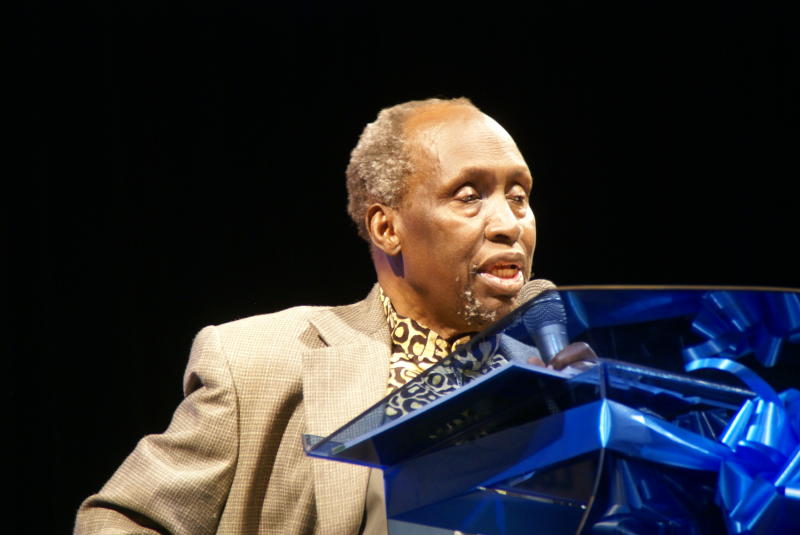
The President of Catalonia and all guests present:
The Premi Internacional Prize has touched my heart in special ways. When I received the news in December 2019, I was lying on a hospital bed at UC Medical Center, feeling completely helpless because I had just undergone a heart surgery: a triple by-pass. Before the surgery, I had already written my will. So when I received the news of the award, I felt as if I was being met with ululations of a welcome back home from the land of the Dead. Tears of gratitude and joy welled up in my eyes.